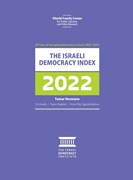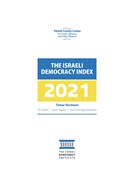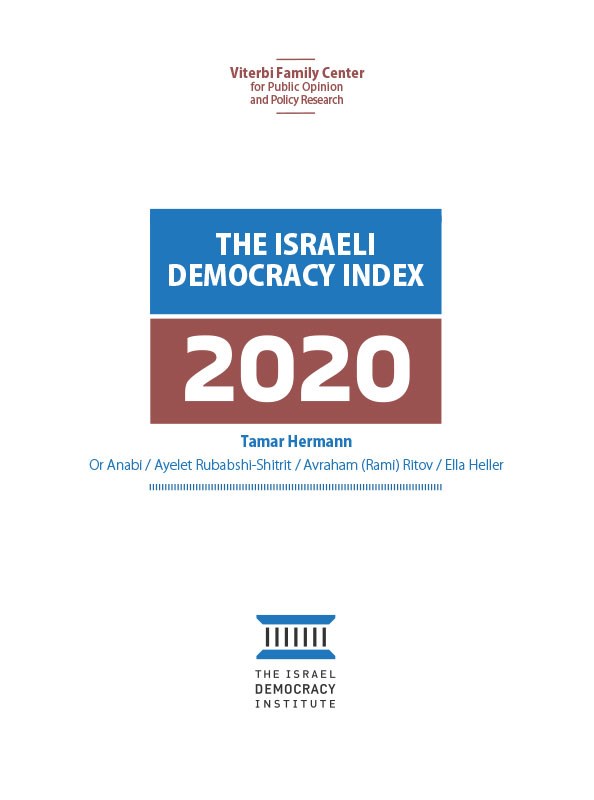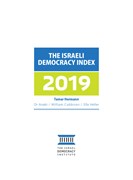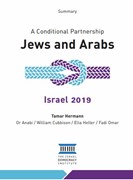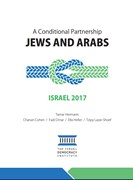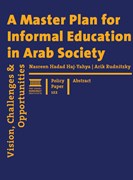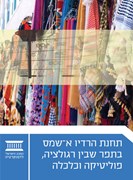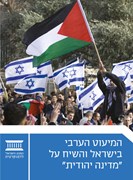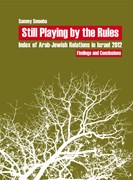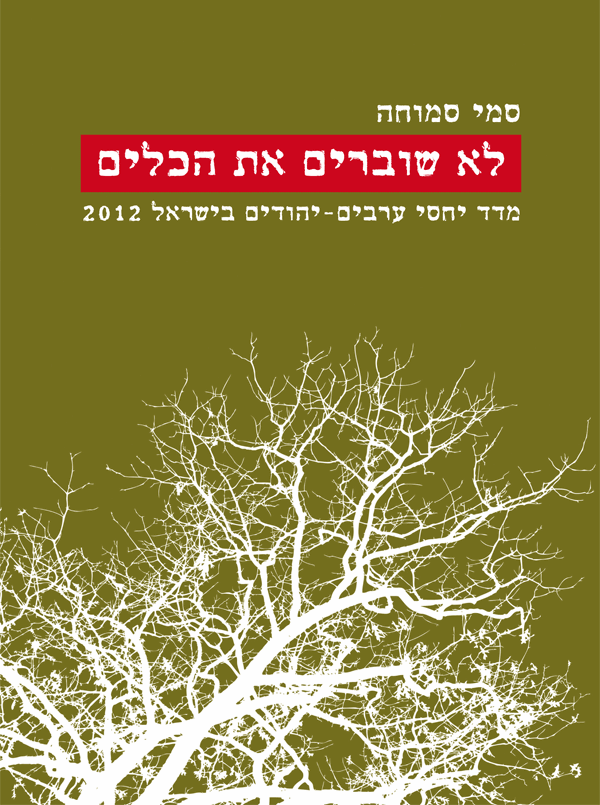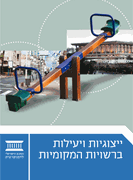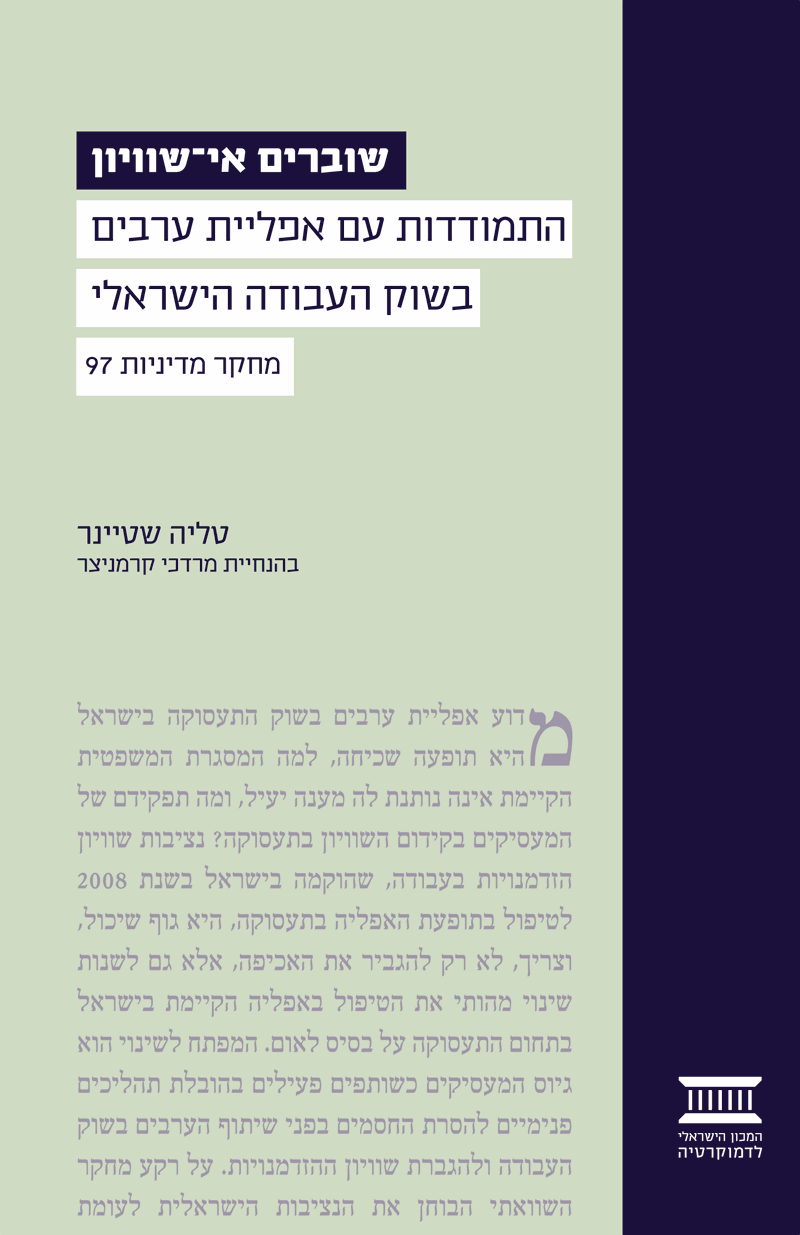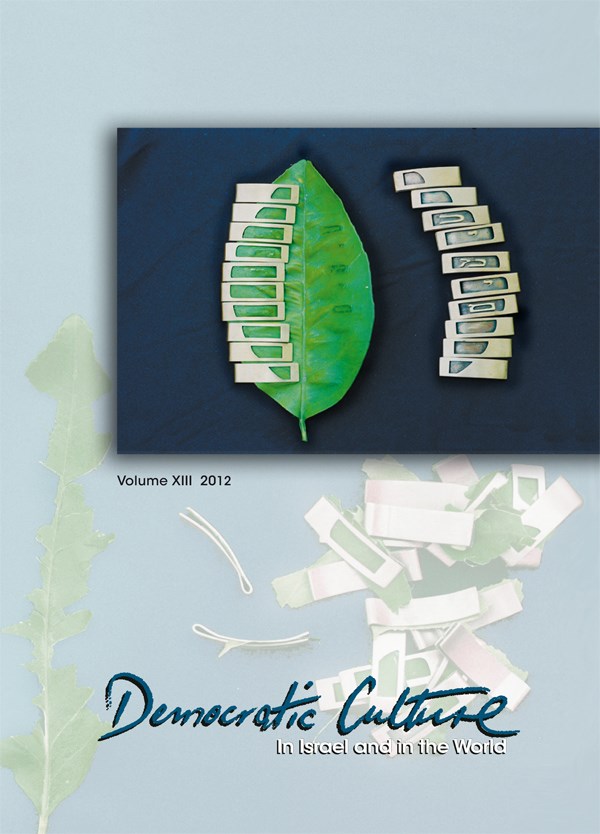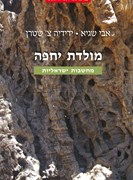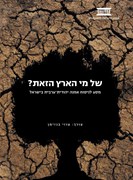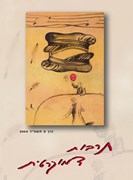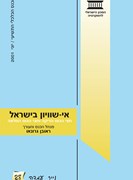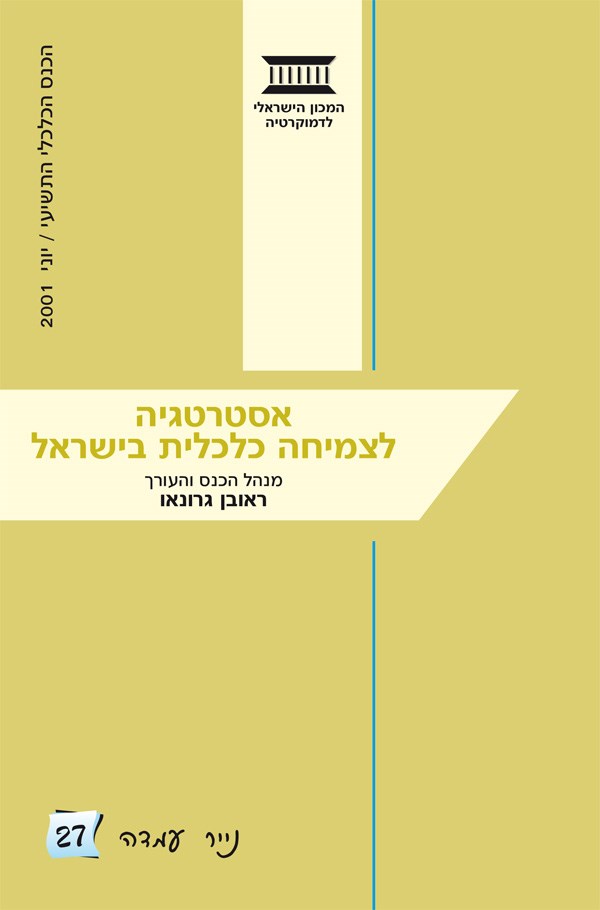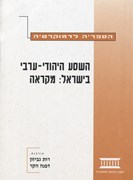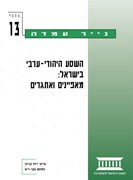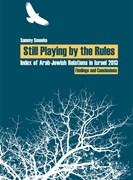

Publications Regarding Arab citizens of Israel
Articles

Lack of Protective Structures Against Missile Attacks in Arab Localities
Written By: Adv. Lital Piller
As Israeli citizens are facing severe threats to their safety during following an escalation of hostilities between Israel and Iran, it is, once again, clear that Arab localities lack proper protective infrastructure against missile attacks.

Cuts to the National Authority for Community Safety Harm National Security
Written By: Dr. Yael Litmanovitz, Tomer Lotan
Drastic budget cuts to Israel's National Authority for Community Safety jeopardize national security by eliminating essential violence prevention and community support services, disproportionately impacting vulnerable populations and exacerbating social instability.

There Are Things the Government Can Do to Combat Crime in Arab Society. It Must Do Them Now.
Written By: Adv. Anat Thon Ashkenazy, Adv. Reda Jaber
Crime in Arab society has seen an unprecedented surge in the past couple of years posing a threat to Israeli society as a whole. What's needed is a real political commitment to the issue, making it clear to criminals that they face the entire state and society.

IDI Survey: Most Jewish Israelis feel safer in a scenario with high number of civilian firearms; most Arabs feel less safe
Written By: Viterbi Family Center for Public Opinion and Policy Research, Center for Security and Democracy
The Center for Security and Democracy and the Viterbi Center for Public Opinion and Policy Research at the Israel and personal security—the present release focuses on internal security; a press release will follow tomorrow focusing on national security.

The Impact of the War on Israel's Arab Population in the Labor Market
Written By: Yarden Kedar
An analysis of the effects of the war on employment within Israel's Arab population.
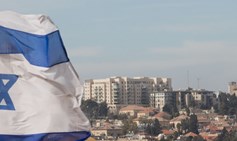
Nation-State Law Explainer
Written By: Dr. Amir Fuchs, Prof. Suzie Navot
Fact Sheet: The Basic Law: The Nation-State
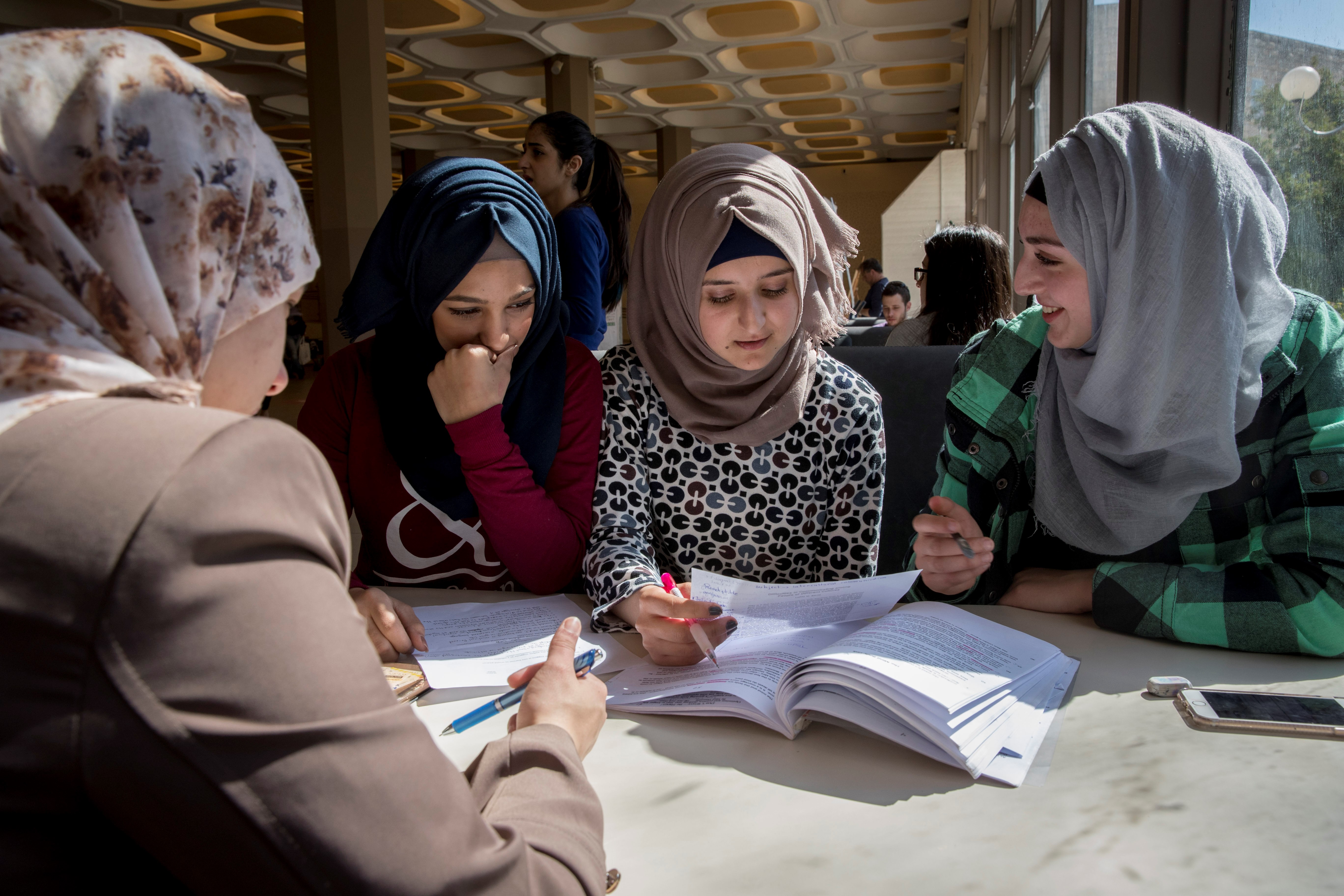
It's Time to Invest Resources in Arab Young Adults
Written By: Dr. Ahmad Badran
Young adults in every society are the face of that society's future, and Arab society in Israel is no different. They face a complex set of daily struggles, in all areas, in their attempt to forge a good future for themselves, their community, and society at large.
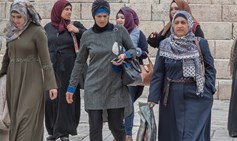
The Judicial Revolution and Arab Society in Israel
Written By: Adv. Oded Ron, Dr. Muhammed Khalaily
Reducing the possibility of invalidating legislation and the rest of the initiatives will further undermine the protection of the rights of the Arab minority in Israel, whose trust in the judicial system has steadily decreased in recent years - but is still high in relation to trust in other institutions.
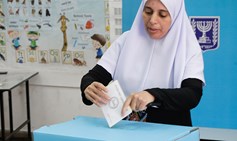
An Elections for the 25th Knesset: An Analysis of the Results in the Arab Sector
Written By: Dr. Arik Rudnitzky
This review analyzes voting patterns among Arab citizens in the elections for the 25th Knesset, held on November 1, 2022. The graphs and tables are based on an analysis of the final results, as published by the Central Elections Committee.
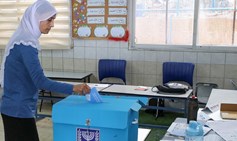
Arab Votes in the 2022 Election
Written By: Dr. Arik Rudnitzky
Dr. Arik Rudnitzky breaks down the Arab vote to the 25th Knesset elections – it seems that Ra’am's gamble paid off and they emerged the big winner.
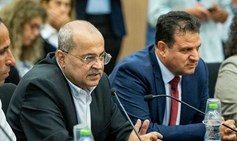
Ideology isn’t a Dirty Word
Written By: Dr. Muhammed Khalaily
The disintegration of the Joint List is arousing diametrically opposite reactions from the two big blocs of the Israeli political spectrum. How will this new political reality play out in the upcoming elections?
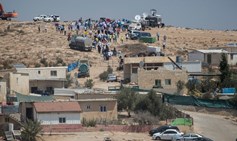
Democracy for All
Written By: Dr. Muhammed Khalaily
Democracy is not just majority rule, but ensuring that all segments of society are provided with the opportunity to take part in a free and fair political process. For Israel, this means ensuring that the Bedouin population has equal opportunity to place their vote in the upcoming election.

Restoring Hope to Israel’s Arab Citizens Offers Hope for All Israelis
Written By: Dr. Muhammed Khalaily
The expected drop in voter turnout among Arab citizens and their representation in Knesset, regardless of who wins or loses these elections, poses a real threat to the political system as a whole.
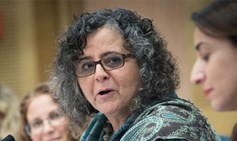
Arab Women Call Out to Arab Men: Let's Join Forces
Written By: Dr. Nasreen Haddad Haj-Yahya
Closing the gender gap is crucial to closing social and economic gaps overall - Arab men and women must work together towards this goal
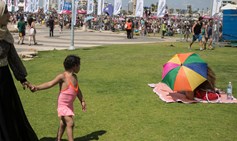
Arab Residents of Mixed Cities: A Snapshot
Written By: Dr. Nasreen Haddad Haj-Yahya, Adv. Oded Ron, Ben Fargeon
This study aims to provide an up-to-date snapshot of the current situation in mixed cities alongside a description of trends in Israel’s mixed cities over time, in five closely related fields—welfare, education, higher education, employment, and crime—by presenting data collected over a period of time, as a critically important input to sound policymaking.
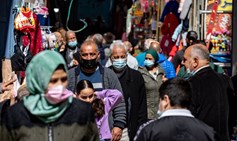
The Arab Citizens of Israel
Written By: Dr. Arik Rudnitzky
Richard Pater from Bicom and IDI expert Dr. Arik Rudnitzky discuss the social, political and economic situation of the Arab citizenry in Israel - economic programs in the new budget for the Arab sector, the current situation over the military draft for young Arabs, government actions to tackle the level of crime in Arab towns, as well as the political dynamics between the United Arab List (in government) and the Joint Arab List (in opposition).
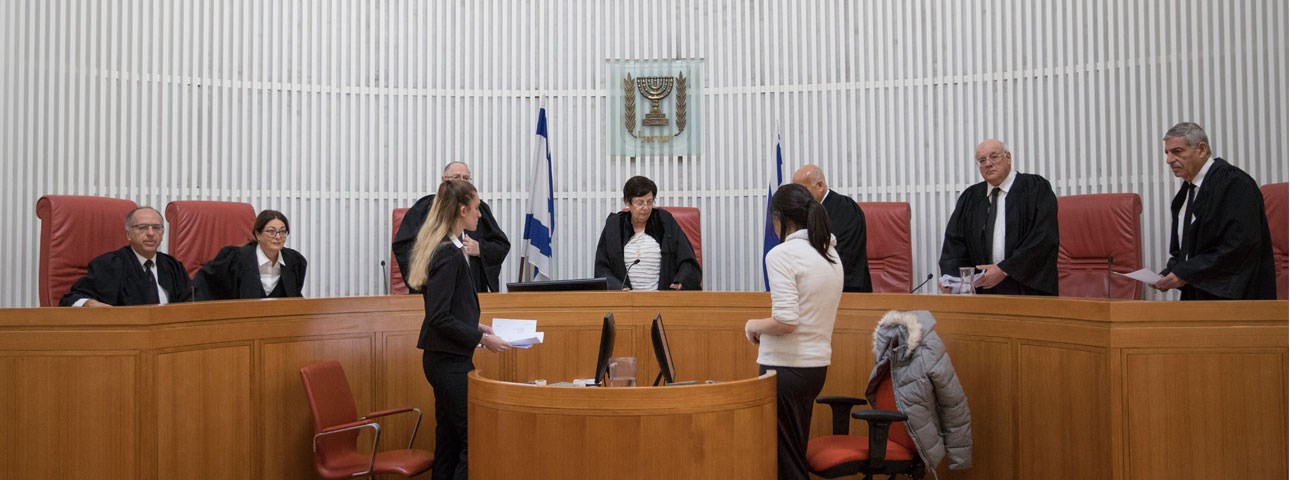
One Arab Justice Isn’t Enough
Written By: Dr. Guy Lurie
The imminent retirement of Judge Kara will leave the Supreme Court without an Arab justice, yet there is only one Arab candidate on the list of possible replacements. We must move beyond filling the "Arab chair" and ensure proportional representation of Arabs as well as women and Mizrahim in the courts
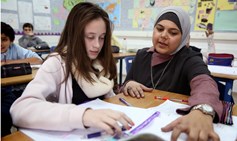
Taking Attendance: Arab Teachers and Students in Israel’s Education System
Written By: Dr. Nasreen Haddad Haj-Yahya
Israel is at a shortage of teachers that is forcing schools to take drastic measures, but the Jewish schools are still not hiring Arab teachers.

Israel's Jerusalem Syndrome
Written By: Dr. Nasreen Haddad Haj-Yahya
The recent clashes in a capital where even the smallest spark can set its streets ablaze are a direct result of the city's long-term neglect of its disadvantaged Palestinian residents, among whom poverty rates are double that of Jewish Jerusalemites.
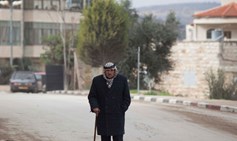
The War on Crime in Israel's Arab sector isn't a Negotiable Commodity
Written By: Dr. Nasreen Haddad Haj-Yahya, Adv. Oded Ron
Arab citizens have the right to feel that their security is protected by the government. This right should be respected and protected declaratively and in practice.

Arab Society in the Wake of the Coronavirus: Policy Recommendations
Written By: Dr. Nasreen Haddad Haj-Yahya, Ayman Saif
After three contentious election campaigns, Israel's new government has been sworn in. IDI's experts weigh-in with their recommendations on the most important issues on the agenda. Dr. Nasreen Hadad Haj-Yahya and Ayman Saif on the urgent challenges facing the 35th government to address the significant economic gaps that between Israel's Jewish and the Arab populations.

Decade-Long High in Israelis' 'Sense of Belonging'
Special IDI Independence Day survey 92.5% of Jewish-Israelis and 77% of Arab-Israelis feel a part of Israel and its problems.

Coronavirus and Haredi and Arab Communities
Written By: Yair Sheleg
In recent years, many comparisons have been made between two communities in Israel - the ultra-Orthodox and Arab Israelis. The coronavirus crisis has brought previously held assumptions into question.
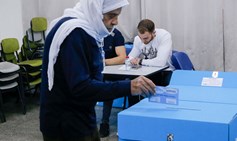
The Arab Israeli Vote in the 23rd Knesset Elections
Written By: Dr. Arik Rudnitzky
The people had their say in these elections. A majority of the Arab Israeli public (65%) turned out to proclaim a resounding vote of confidence in the Joint List
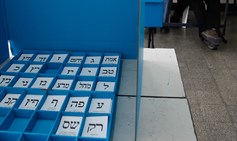
A New Political Card
Written By: Dr. Arik Rudnitzky
Has the "Deal of the Century" injected energy into Israel's third election and perhaps provided an incentive for Arab Israelis to turn out in higher numbers than September? Arik Rudnitzky uses the village of Bartaa as a possible case study.
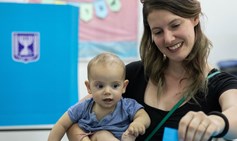
Getting Stay-at-Home Potential Voters to the Polls for Israeli Elections
Written By: Dr. Assaf Shapira, Dr. Ofer Bernstein
Rather than “packaging” voting as a political, civic and moral obligation, we should try instead to get these potential voters to think about the personal benefits to be gained by going to the polls.
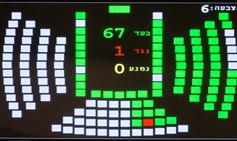
A Decade of Anti-Democratic Legislation
Written By: Dr. Amir Fuchs
The last decade in Israel has been marked by a wave of legislation that has dealt a blow to the country’s democratic values, the rule of law, and separation of powers.
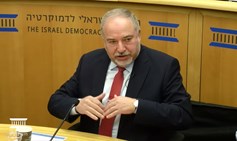
MK Liberman: " If third elections are held the outcome will be different"
MK Avigdor Liberman at IDI Annual Conference on Security and Democracy: "I fully trust the security forces know how to deal with threats in a professional manner uninfluenced by outside biases"

Some are Guilty, but All Are Responsible
Written By: Dr. Nasreen Haddad Haj-Yahya
When the PM smeared Arab Knesset members, those 'allies' who urged us to go and vote had a responsibility to protest. They didn't.
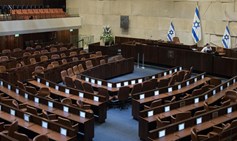
A Minority Government in Israel?
Written By: Dr. Assaf Shapira
The final results of the third election are in and Israel is in very much the same stalemate position as the previous two rounds - is a minority government the solution?
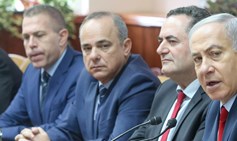
Camera Bill Legislation: Misuse of Political Power of a Transitional Government
An unprecedented decision that adversely affects the status of the Attorney General and constituted a misuse of political power by a transitional government.

Every Cloud has a Silver Lining?
Written By: Dr. Arik Rudnitzky
Arab parties can surge if they shake off the old politics - a significant number of Arabs who stayed home in April will vote if they are persuaded their leaders have integrity
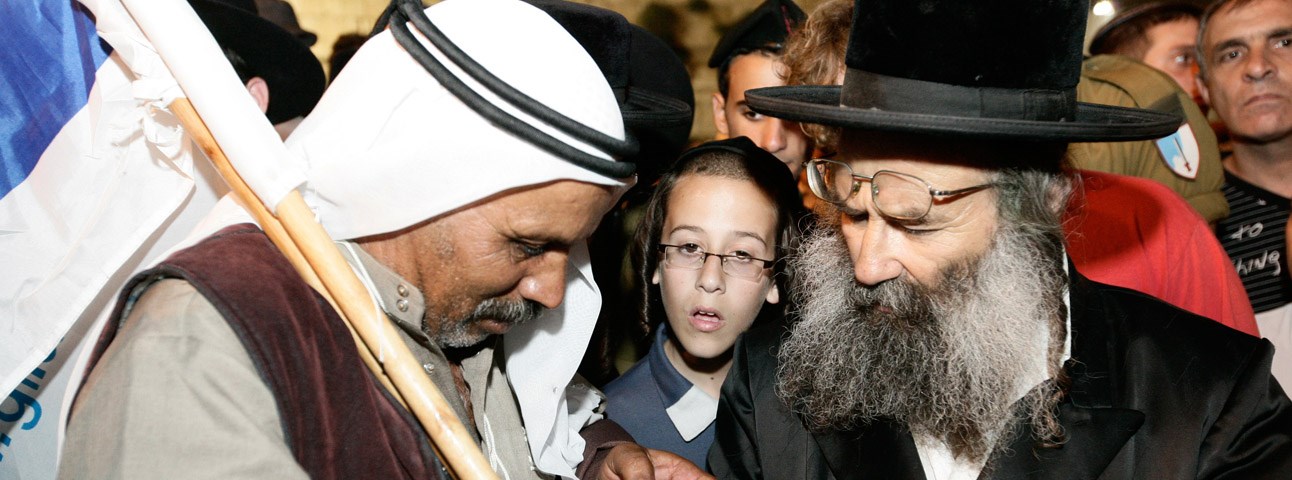
Is Israel like Iran? Hardly
Written By: Dr. Shuki Friedman
An unflattering US report on freedom of religion would have us believe that Israel is being run by an ayatollah-like regime. While some limits to freedom of religion exist, Israel is a free country
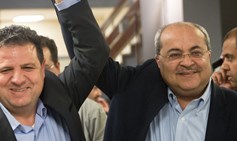
Another Chance for the Joint List
Written By: Dr. Arik Rudnitzky
Will Arab politicians take advantage of the second chance that the new elections have presented? Runing in a Joint List and reaching out to their younger voters - 60% of which didn't vote in the last election, would be the right place to start.
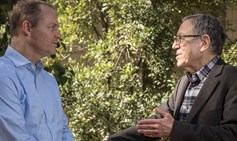
Is Israel's Democracy in Crisis?
Written By: Yohanan Plesner , Prof. Irwin Cotler, By: Steve Linde
IDI’s President Yohanan Plesner and Canadian jurist Irwin Cotler on the challenges facing Israeli democracy in the months ahead.
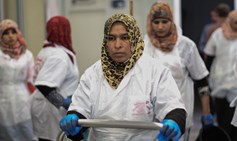
Arab Israeli Women Joining the Labor Force in Large Numbers
Written By: Dr. Nasreen Haddad Haj-Yahya, Aiman Saif, By: Linda Gradstein
Are these encouraging numbers the harbinger for positive change in Israeli society?

Arab Votes for the 21st Knesset
Written By: Dr. Arik Rudnitzky
Arab turnout for the vote was the lowest in a decade – only 49% participated in the elections for the 21st Knesset – Arik Rudnitzky summarizes
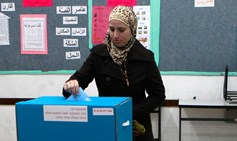
And Now, Over to the Public
Written By: Dr. Arik Rudnitzky
After abysmal Arab voter turnout, it’s time for public action. Arabs in Israel are desperate for a new discourse and leaders who connect with them -- what they don't want is more ideology
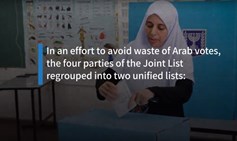
Disintegration of the Joint List poses new challenge to future of Arab politics
Written By: Dr. Arik Rudnitzky
The fifth in a series of articles and videos prepared by the Israel Democracy Institute in the run-up to April 9, explaining and critiquing what goes on during an election period
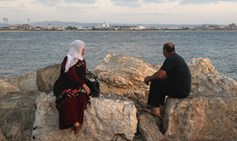
The Five-Year Plan for Arab Israelis: the Acid Test of the Upcoming Elections
Written By: Dr. Nasreen Haddad Haj-Yahya
The five-year plan for the development of the Arab community was a giant step forward towards the socioeconomic advancement of Israel’s Arabs, nevertheless the current election campaign is going to be the acid test: Is the Israeli government serious about integrating the country’s Arab citizens into the broader society, or merely in promoting the Arab economy in light of its importance for the country’s overall prosperity?
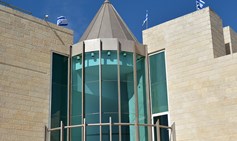
House Demolition at the Israeli Supreme Court: Recent Developments
Written By: Prof. Yuval Shany, Prof. Amichai Cohen
In its fight against terrorism, Israel has often been proud of its ability to effectively fight terrorism, while remaining faithful to democratic principles. House demolitions were always considered a necessary evil, which could be resorted to in very exceptional circumstances - are we now facing populist trends that runs contrary to the traditional ethos of subjecting counterterrorism policies to rule-of-law constraints.

Elections, Security and the Next Government
Written By: Prof. Tamar Hermann, Prof. Ephraim Yaar
The majority of Israelis think that Trump’s decision to withdraw from Syria harms Israel’s security and want a right or center-right government. Read more in the latest Peace Index.
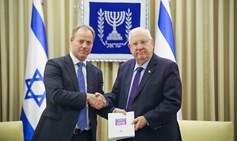
Presentation of the Israeli Democracy Index to the President of Israel
Written By: Yohanan Plesner
"Our central mission—and we see you as a partner in this—is to strengthen Israel’s democratic core in the spirit of the Declaration of Independence" says Yohanan Plesner in his address to President Reuven Rivlin.
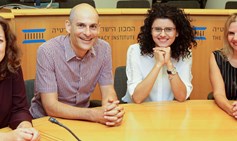
Meet the Next Generation of IDI Leaders
Written By: Rachel Cohen, Adv. Alona Vinograd, Dr. Nasreen Haddad Haj-Yahya, Daphna Aviram-Nitzan, Dr. Gilad Malach
Guaranteeing an independent Supreme Court. Integrating the Ultra-Orthodox into the IDF. Boosting participation of Arab women in the workforce. Improving the ease of doing business in Israel. These are some of the challenges facing IDI’s new cadre of program and center directors.
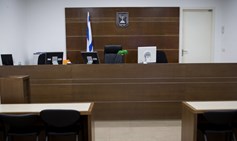
In Grand Debut, Israel's Nation-state Law Reveals Its Ugly True Colors
Written By: Prof. Mordechai Kremnitzer
The deputy president of the Jerusalem District Court inaugurated the Basic Law on Israel as the Nation-State of the Jewish People, issuing the first verdict based on it - imposing punitive damages on Hamas for the severe post-traumatic stress suffered by a Jewish Israeli wounded in a terror attack in Tel Aviv in 1998.
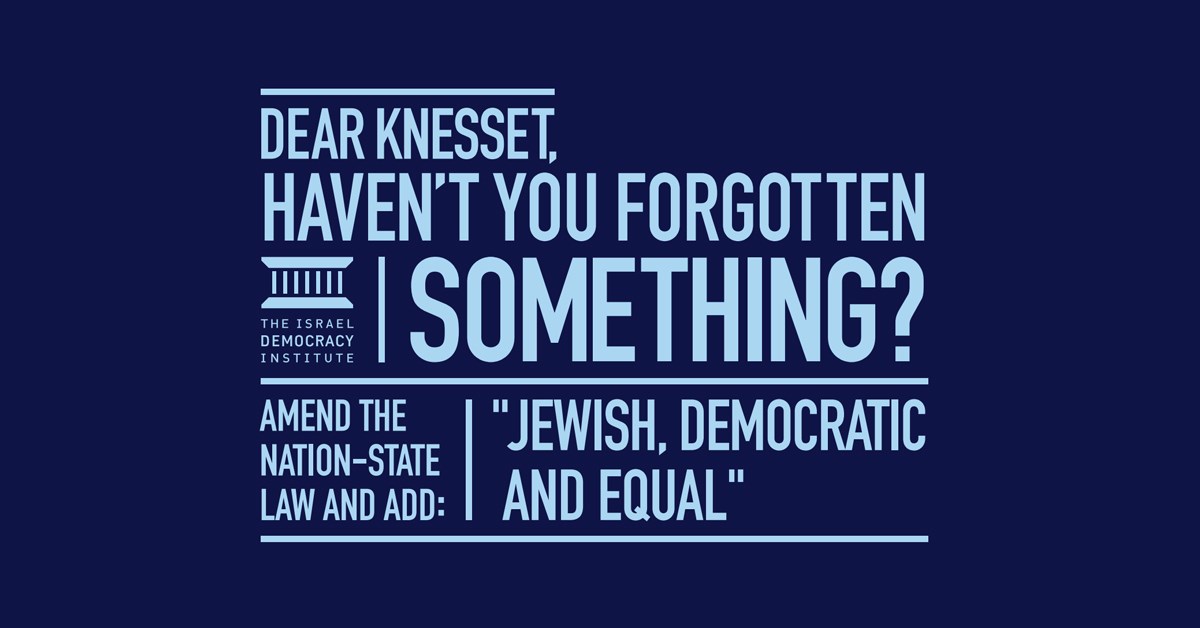
Q&A about the Nation-State Law
Amend the Nation-State Law and Add: "Jewish, Democratic and Equal"

Strengthening Jewish Peoplehood In The Diaspora — But Not In Israel
Written By: Yohanan Plesner
In the bill’s final wording, the state only commits itself to act within the Diaspora to strengthen the ties of Jewish peoplehood – as if actions taken inside the Jewish state, like the reneged-upon Western Wall compromise, have no bearing on the rest of the Jewish world.
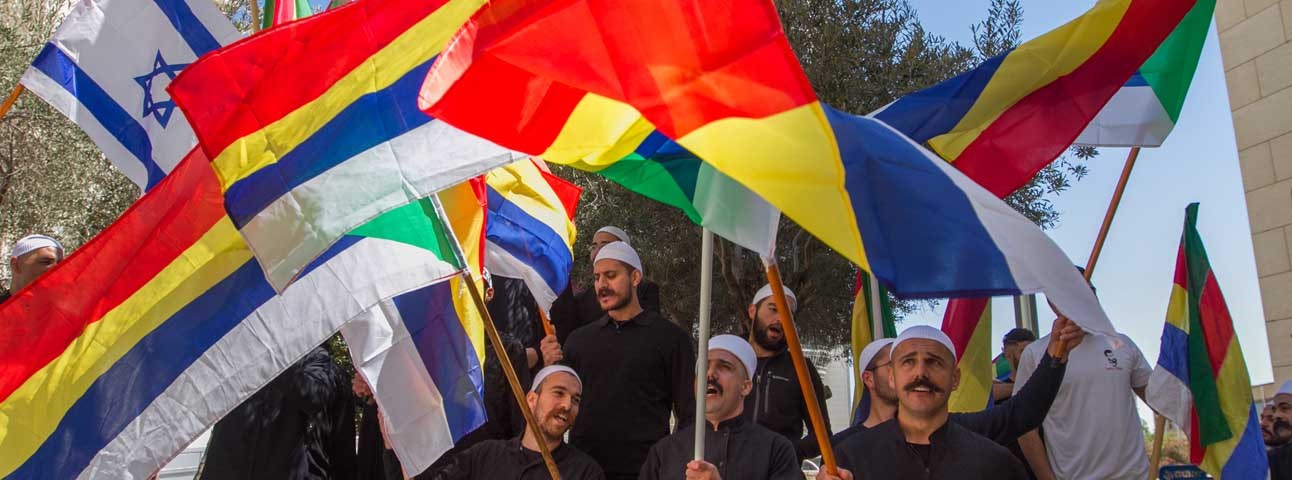
60% of Israelis Think the New Nation-State Law Should Have Included ‘Equality'
Written By: Prof. Tamar Hermann, Prof. Ephraim Yaar
The monthly Peace Index of the Israel Democracy Institute and Tel Aviv University, published today, finds that: only 52% of Jewish Israelis think it was important to pass the Nation-State law at this time.

Letter to the Israeli Government on the Nation State Bill
Written By: Yohanan Plesner , Prof. Yuval Shany, Prof. Yedidia Z. Stern
The Israel Democracy Institute issued a letter to the Prime Minister regarding the Nation State Billl, asserting that if the value of equality is not anchored in the legislation alongside the other enumerated national characteristics of the state, the law may eventually erode Israel's democratic character

Watch the Construction of the Democracy Pavilion in 60 Seconds
Ron Huldai, Mayor of Tel Aviv-Yafo Municipality: "The establishment of the Democracy Pavilion is an impressive demonstration of Israeli democracy. Only in a democratic society can freedom and tolerance co-exist. This is what allows the opposing sectors of Israeli society to live side by side." The Democracy Pavilion is located at the start of the Independence Trail in Tel Aviv and is open to the public free of charge.

What Would Herzl Say About the Nationality Bill?
Written By: Dr. Nasreen Haddad Haj-Yahya
Israel’s leadership appears to have diverted from Theodor Herzl’s path. Instead of striving to create equality and a common ground, it is doing everything in its power to incite and divide for the sake of a few more votes.
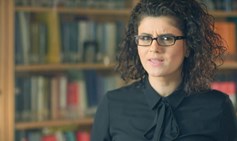
Equal Opportunity for Israeli Arabs
Written By: Dr. Nasreen Haddad Haj-Yahya
Recent findings by the Central Bureau of Statistics on the Israeli labor market reveal that 80% of the country's Arab citizens are employed in jobs with difficult physical conditions. Watch a Research Reel about the NEET phenomenon among Israel’s Arabs.
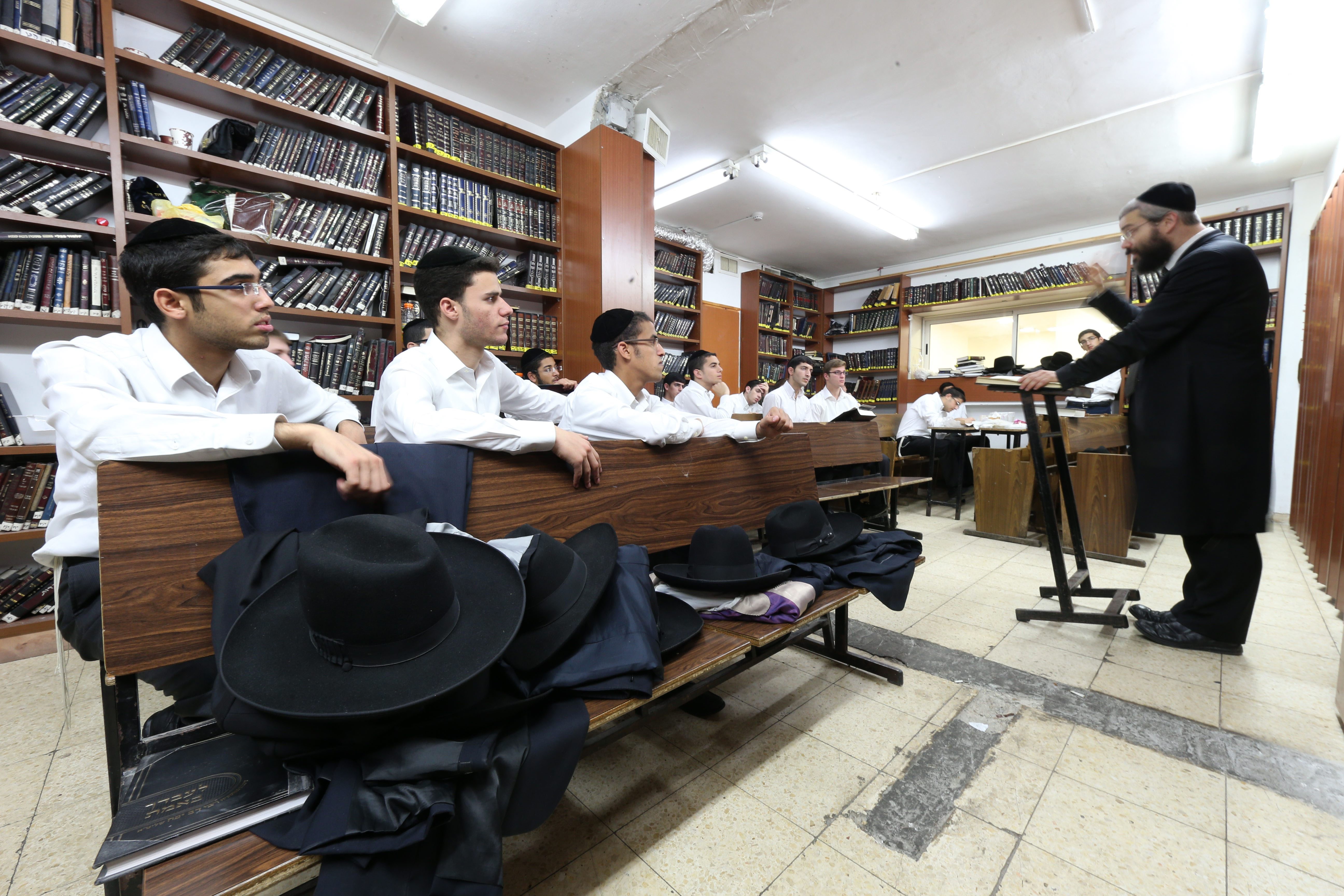
Israel's Next Economic Miracle?
Written By: Dr. Gilad Malach, Dr. Nasreen Haddad Haj-Yahya
Haredim and Arabs must be integrated into society and economy to take the start-up nation to the next level.

Baltimore and Ramla
Written By: Dr. Nasreen Haddad Haj-Yahya
The author proposes a number of policy recommendations that could help Israel’s Arab population, and could be applicable to any society that suffers from socioeconomic segregation and related challenges. This article was first published by Jmore.
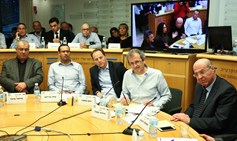
Arab Political Leadership in Israel
MK Dr. Benny Begin: "Before finalizing the five-year plan for the Arab community, 40 to 50 meetings were held between government representatives and Arab Knesset members."

Surprised? Meet Israel’s New political Center
Written By: Prof. Yedidia Z. Stern
Although one need not agree with the positions held by Israel’s Arab citizens, it can’t be denied that they constitute an independent, moderate voice – and a promising political middle ground on the Palestine- Israeli conflict. This article first appeared in The Jerusalem Post.

The Road to Hi-Tech Runs through Taibeh
Written By: Dr. Nasreen Haddad Haj-Yahya
The integration of talented Arab employees into Israel’s hi-tech sector could relieve the human-resources shortage for employers. Encouraging Arabs to enter the hi-tech industry could improve their economic situation significantly, which would reduce inequality and contribute to a reduction of social tensions in the Arab community.

The Israel Democracy Institute is Opposed to Expanding the Criteria for Disqualifying Knesset Candidates
Ahead of Sunday's vote on an 'Arab exclusion' bill by Yisrael Beiteinu Minister of Knesset Oded Forer, IDI's Prof. Mordechai Kremnitzer and Dr. Amir Fuchs sent a policy statement to the committee against the bill.
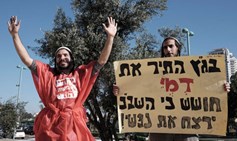
Torture Laws Must Apply To Arab And Jew Alike
Written By: Prof. Mordechai Kremnitzer
Dr. Mordechai Kremnitzer argues that it is time for Israel to examine the Shin Bet security service's regulations, based on the assumption that they apply to all residents of Israel. One law must apply to all suspected perpetrators of terrorist acts — Jews and Arabs alike.
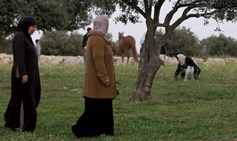
Israeli Public Divided Over Trust for Arab Citizens
Written By: Mr. Chanan Cohen
IDI Researcher Chanan Cohen says that while the greatest tension in Israel is between Arab and Jewish Israelis, there is cause for hope. The vast majority of Jews support having Arabic translations of public signs in Israel, teaching Arabic in school and having Arab citizens represented in the civil service. This article was first posted in the New York Jewish Week.
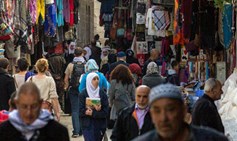
How Not to Achieve Coexistence
Written By: Dr. Sami Miaari
Arab elected officials have disappointed the public time after time with their lack of professionalism in how they lead their constituents toward political change. (This article was originally published by the Jerusalem Post.)
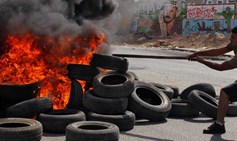
Ignite Hope, End the Violence
Written By: Adv. Eli Bahar, Dr. Nasreen Haddad Haj-Yahya
Nasreen Hadad Haj-Yahya and Eli Bahar say the biggest difference between the security situations in 2000 and now is the profound lack of understanding between the two sides. This article was first published on the Times of Israel website.

Jewish vs. Democratic: IDI Experts Say Nation State of the Jewish People Bill Threatens Stability in Israel
Bill is as an attempt to destabilize the balance between Israel's democratic character and its Jewish character.
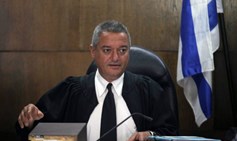
Appointing Arab Judges to the Courts in Israel
Written By: Dr. Guy Lurie
In an article in Mishpat U'Mimshal, IDI researcher Dr. Guy Lurie addresses the issue of the lack of Arab judges in Israeli courts. This abstract presents the main issues discussed in the article.

The Call to Exclude Arabs Is Unacceptable
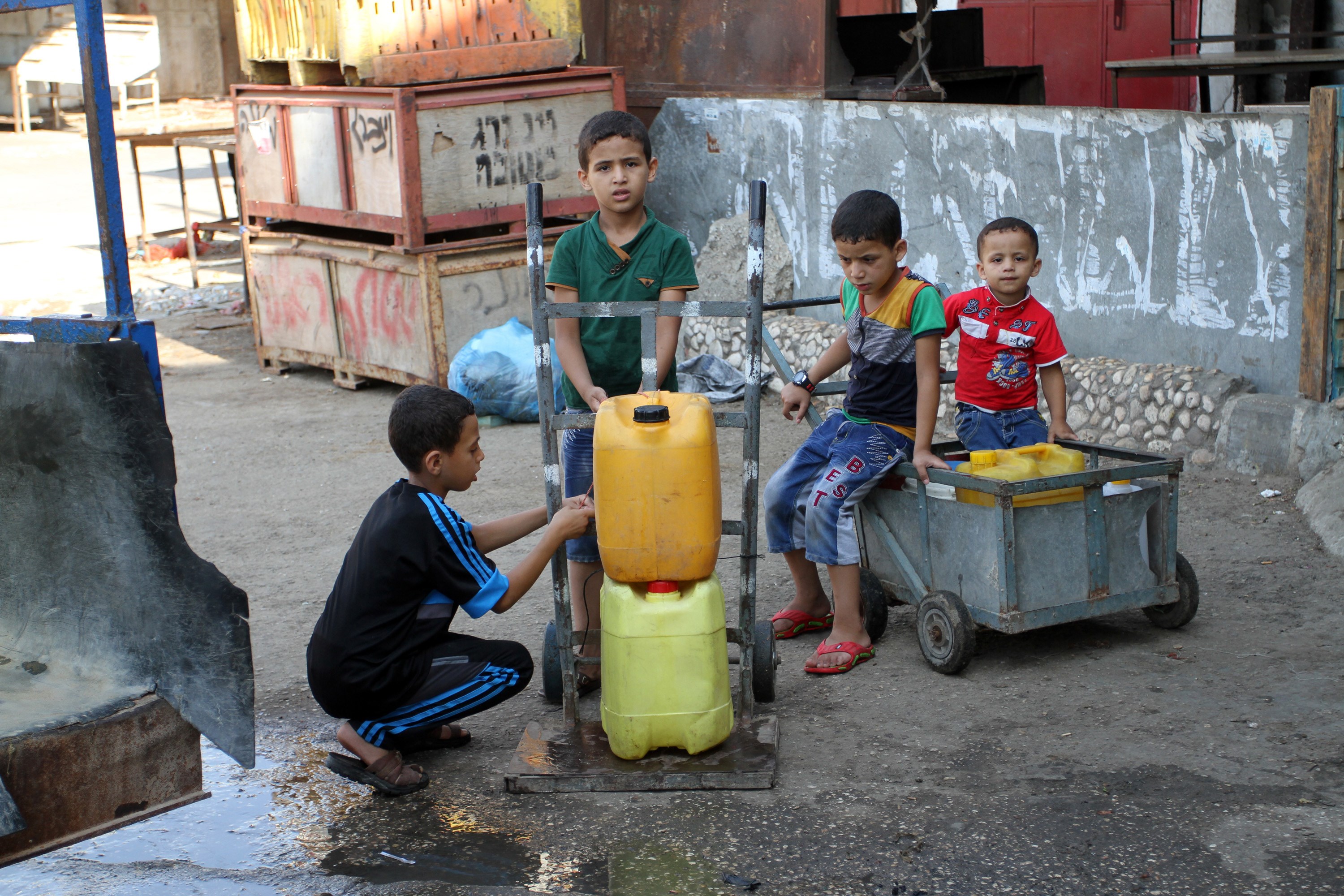
The Admissions Committees Ruling: A Lack of Ripeness or Refusal to Decide?
Written By: Dr. Amir Fuchs
Dr. Amir Fuchs discusses the Israeli High Court of Justice's decision to uphold the "Admissions Committees Law," which allows small communities to reject applicants due to a lack of social suitability.

A Social Iron Dome for Jewish-Arab Relations
Written By: Prof. Yedidia Z. Stern
In an op-ed in <em>Yedioth Ahronoth</em>, Prof. Yedidia Stern warns that the Iron Dome could not protect Israel from hatred between Jewish and Arab citizens, and stresses the need for both sides to use imaginative empathy to mend the fabric of Israel's shared society.?

Education for Democracy as a Remedy for Violence
Written By: Dr. Amir Fuchs
Attorney Amir Fuchs asserts that educating Israeli students regarding democracy and civics from a young age and throughout their education is the best way to prevent hatred, violence, and racism.
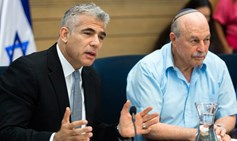
Zero Tax, Zero Logic
Written By: Dr. Amir Fuchs
Attorney Amir Fuchs argues that the proposed legislation that would exempt first-time home-buyers from value added tax (VAT) violates the principle of equality for people who do not serve the State of Israel.
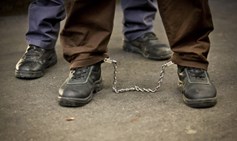
The "Anti-Pardon" Bill: Laws are not a Substitute for a Backbone
Written By: Dr. Amir Fuchs
In an article in <em>The Times of Israel</em>, Attorney Amir Fuchs argues that legislation that would give judges the authority to sentence murderers to life in prison with no possibility of pardon is misguided and will not prevent terrorists from being released in future prisoner exchanges.
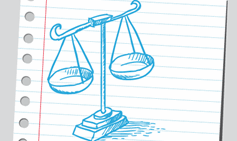
Basic Law: Nation State? Only a Constitution Can Guarantee Israel's National Character
Written By: Dr. Amir Fuchs, Prof. Mordechai Kremnitzer
Prof. Mordechai Kremnitzer and Attorney Amir Fuchs assert that the only way to guarantee Israel's existence as a Jewish and democratic state is not through a Basic Law that defining Israel as the nation state of the Jewish people but through a Constitution.

Censorship, Gag Orders, Military Censor, Media
Written By: Prof. Mordechai Kremnitzer, Dr. Amir Fuchs
Prof. Mordechai Kremnitzer and Attorney Amir Fuchs assert that the only way to guarantee Israel's existence as a Jewish and democratic state is not through a Basic Law that defining Israel as the nation state of the Jewish people but through a Constitution.
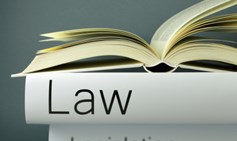
IDI Experts Submit Legal Opinion on Basic Law: Israel as the Nation State of the Jewish People
Written By: Prof. Mordechai Kremnitzer, Dr. Amir Fuchs
On June 4, 2014, IDI experts Prof. Mordechai Kremnitzer and Attorney Amir Fuchs submitted a legal opinion to the Ministerial Committee on Legislation stating their concerns about the proposed Basic Law: Israel as the Nation State of the Jewish People. A full translation of this legal opinion can be found below.

IDI Experts Submit Legal Opinion on Basic Law: Israel as the Nation State of the Jewish People
Written By: Prof. Mordechai Kremnitzer, Dr. Amir Fuchs
A legal opinion opposing the proposed Basic Law: Israel as the Nation State of the Jewish People, which was submitted by IDI Vice President Prof. Mordechai Kremnitzer and Attorney Amir Fuchs to the Ministerial Committee on Legislation on June 4, 2014.

Basic Law: Israel as the Nation State of the Jewish People – A Danger to the Zionist Enterprise
Written By: Dr. Amir Fuchs, Prof. Mordechai Kremnitzer
In an article in the Hebrew weekly <em>Makor Rishon</em>, Prof. Mordechai Kremnitzer and Attorney Amir Fuchs argue against the current initiative to pass Basic Law: Israel as the Nation State of the Jewish People, which they see as divisive and problematic.

Price Tag Attacks: Racist Crimes
Written By: Dr. Amir Fuchs
In an article in <em>Haaretz</em>, Attorney Amir Fuchs stresses the need to wage a genuine war against racism, in order to preserve the values of Zionism and safeguard the Jewish and democratic state.

Israeli Public Opinion on Reducing Funding to Organizations that Mark Independence Day as the "Nakba"
Written By: Mr. Chanan Cohen
What do Jews in Israel think about the law mandating the reduction of government funds to institutions that mark Israel Independence Day as a day of mourning for the Palestinian "Nakba"? Find out in this mini-survey conducted by IDI's Guttman Center.

Public Opinion: Is Israel Independence Day a Holiday?
Written By: Mr. Chanan Cohen
Do Jewish and Arab citizens of Israel see Yom Ha'atzmaut as a holiday? Do perceptions among Jews vary depending upon level of religiosity or position on the right-left political spectrum? Find out in this Mini-Survey from IDI's Guttman Center.
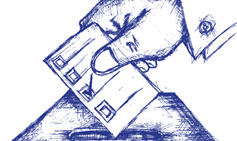
Basic Law: Referendum—Changing the Rules of the Game of Israeli Democracy
Written By: Dr. Dana Blander
Dr. Dana Blander draws on the findings of Israeli public opinion polls and explores some of the ramifications of the new Basic Law: Referendum, a law that establishes a system in which every citizen is entitled to participate in historic decisions on withdrawal from territory.

Is "Israeli" a Nationality?
Written By: Jay Ruderman, Prof. Yedidia Z. Stern
Should the State of Israel recognize "Israeli" as a nationality? IDI Vice President Prof. Yedidia Stern and Jay Ruderman assert that it is imperative for the State of Israel to continue distinguishing between citizenship and nationality.

Building a Shared Society: On the Priorities of the Israel Police
Written By: Prof. Mordechai Kremnitzer
Prof. Mordechai Kremnitzer explains the importance of the fifth meeting of IDI's Police and Society Forum, which was dedicated to the question of partnership and transparency in the relationship between the Israel Police and Arab society.

Do You Have to Earn Dignity?
Written By: Prof. Tamar Hermann
Is dignity something that must be earned? Prof. Tamar Hermann, Head of IDI's Guttman Center for Surveys, explores this question, as IDI's Israel Speaks project assembles 200 citizens to begin drafting a Declaration of Human Dignity.

Remembering Ariel Sharon (1928–2014)
Written By: Prof. Ofer Kenig
Dr. Ofer Kenig presents some of the milestones in the career of Ariel Sharon, the 11th Prime Minister of the State of Israel.

The Contributors to the State Bill: Contributing to the Jewish-Arab Divide
Written By: Dr. Talya Steiner, Prof. Mordechai Kremnitzer
Prof. Mordechai Kremnitzer and Att. Talya Steiner warn that the veteran's benefit bill, which is intended to extend benefits to those who have contributed to the State, discriminates against Israel's Arab citizens, who are exempt from military service in Israel.
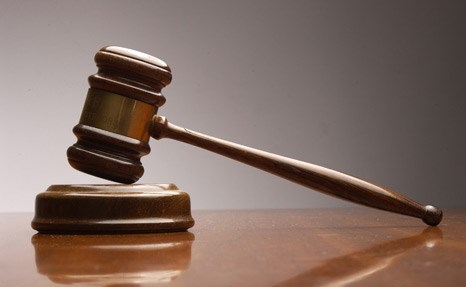
Basic Law: Israel as the Nationalist State of the Jewish People
Written By: Dr. Amir Fuchs, Prof. Mordechai Kremnitzer
In an op-ed originally published in Maariv, Prof. Mordechai Kremnitzer and Attorney Amir Fuchs warn that the Basic Law: Israel as the Nation State of the Jewish People would undercut the balance between the "Jewish" and "democratic" nature of the State of Israel.
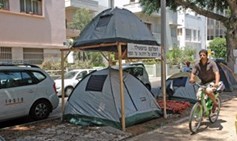
Social Justice in Jewish-Arab Relations in Israel
Written By: Shlomit Kagya, Ola Nabwani, Avital Manor, Nabil Khattab, Sami Miaari
An article by members of IDI’s Arab-Jewish Relations research team, which explores the lack of social justice for Israel’s Arab minority in three areas: employment, healthcare, and the public sphere.
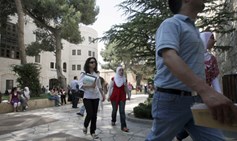
Is Anyone Surprised that Only 11% of Israeli Undergraduate Students are Arab?
Written By: Nabil Khattab
As the academic year started at Israeli universities, <em>Haaretz </em>reported that Israel's Arab population is extremely under-represented in all levels of Israeli higher education. Dr. Nabil Khattab, head of IDI's Arab-Jewish Relations project, shares his thoughts on these findings.

License to Discriminate: A Jewish and Undemocratic State
Written By: Prof. Mordechai Kremnitzer, Shiri Krebs
A bill entitled "Basic Law: Israel – The Nation State of the Jewish People" is currently being considered by the Knesset. Although it was sponsored by a large number of Knesset members from a both the coalition and the opposition, the bill is controversial as it may disrupt the delicate balance between the "Jewish" and "democratic" identities of the State of Israel. In this op-ed, IDI Vice-President Prof. Mordechai Kremnitzer and Researcher Adv. Shiri Krebs argue that the bill is unnecessary and counterproductive to the goal of a Jewish and democratic Israel.
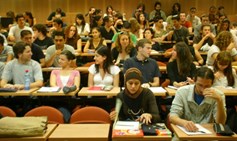
Occupational Mismatch among College-Educated Arabs in Israel
Written By: Sami Miaari, Nabil Khattab, Ola Nabwani
An abstract of an article that examines the extent of the occupational mismatch among college-educated Arabs as compared to the mismatch among college-educated Jews, based on data from surveys conducted from 2000–2010.

The Fruit of a Poisonous Tree
Written By: Dr. Amir Fuchs
Israeli politicians deemed the attack of a group of Arab teens by a group of Jewish teens to be the act of "bad apples" who don't represent the norm. In the following op-ed, however, IDI researcher Attorney Amir Fuchs warns that the radicalization of Israeli youth is the fruit of a poisonous tree being cultivated in the Knesset itself.

Do Educational Gaps between Elementary School Teachers Have an Impact on Achievement Gaps between Jewish and Arab Schools?
Written By: Nabil Khattab
Are there gaps in the level of formal education required of elementary school teachers in the Arab and Jewish sectors in Israel and the level of education that they actually attain? Dr. Nabil Khattab, head of IDI’s Arab-Jewish Relations project, explores this question as part of an attempt to understand gaps in achievement between Jewish and Arab schools.

The Security Check Appeal: Another Extension of the Judgment
Written By: Eli Bachar
Eli Bahar, former legal adviser to the General Security Service, analyzes the Israeli Supreme Court’s decision to postpone ruling on a petition requesting the elimination of ethnic security checks in Israeli airports.

State Involvement in Equitable Distribution: A Comparison of the Jewish and Arab Sectors in Israel
Written By: Amit Lazarus
An article on the role of the State in the redistribution of economic resources during the first decade of the 21st century, which was written as part of IDI’s Arab-Jewish Relations project.

Abstract: Health Inequality of Arabs and Jews in Israel
Written By: Shlomit Kagya, Nabil Khattab
A paper that reviews the state of research on health inequality between Jews and Arabs in Israel in order to develop a comprehensive research program that will contribute to the understanding of the factors leading to inequality.

Employment Among Israeli Arabs
The percentage of Arabs in the labor market is lower than that of other groups in Israeli society and is among the lowest in the world. Because this discrepancy is based on national-religious schisms, raising the Arab employment rate has important economic, social, and political-national implications. Find out more about this issue in this report, which was submitted by IDI's Arab-Jewish Forum to the Committee for Socio-Economic Change headed by Professor Manuel Trajtenberg.
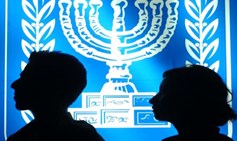
The Quality of Independence
Written By: Prof. Yedidia Z. Stern
In an op-ed from Yedioth Ahronoth written in honor of Israel's 63rd Independence Day, IDI Vice President of Research Yedidia Z. Stern reflects on the quality of Israeli independence, and asserts that a connection with the wellsprings of Jewish culture is necessary for maintaining the quality of the independence that Israel holds so dear.

It isn't for the State to Promote Arab-Jewish Coexistence
Written By: Yair Sheleg
In an op-ed from <em>Haaretz</em>, IDI Research Fellow Yair Sheleg responds to the law allowing admissions committees in small community settlements to bar new residents who do not suit the “lifestyle and social fabric” of the community.

The Nakba Bill: A Test of the Democratic Nature of the Jewish and Democratic State
Written By: Prof. Mordechai Kremnitzer, Dr. Amir Fuchs
The “Nakba Bill” would impose financial sanctions on institutions that commemorate Israel’s Independence Day as a day of mourning. In this op-ed from the Ynet website, IDI’s Prof. Mordechai Kremnitzer and Adv. Amir Fuchs warned that while observing Israel’s Independence Day as a day of mourning by citizens of the State of Israel is “a galling, unpleasant, and defiant act,” the test of a true democracy is whether it is able to allow such expressions of freedom of speech.

Time to Step Up for Democracy
Written By: Dr. Arye Carmon, Prof. Yedidia Z. Stern, Prof. Mordechai Kremnitzer
A number of controversial bills recently tabled in the Knesset undermine basic constitutional values, add fuel to the international assault on Israel's legitimacy, and may end up damaging Israel's democratic character. In an article in The Jerusalem Post, IDI Former President and Founder Dr. Arye Carmon and Vice Presidents Professors Mordechai Kremnitzer and Yedidia Z. Stern respond to these initiatives.

Clear-Cut Racism or Complicated Relationship?
Written By: Yair Sheleg
Are the ostensibly anti-Arab bills under consideration by the Knesset, the “Rabbis’ Letter” that forbids the sale of real estate to non-Jews, and the findings of the 2010 Israeli Democracy Index clear-cut indicators that racism is on the rise in Israel today? Or are more complex factors at play? IDI Research Fellow Yair Sheleg shares his views on this matter.

As Independence Day Draws Near
Written By: Prof. Yedidia Z. Stern
In an op-ed in Yedioth Ahronoth, Prof. Yedidia Stern points to segments of Israel's population that denounce the national values of the State: supporters of “normalization,” ultra-Orthodox Jews, Arab Israelis, and a new group that has joined them: ultra-nationalists.

Arab Identity in a Jewish and Democratic State
Written By: Karin Tamar Schafferman
IDI researcher Karin Tamar Shafferman calls for a reexamination of the relationship between Arabs and Jews in the State of Israel and an exploration of the way Israel's Arabs define themselves, in order to determine whether the equality that Ben-Gurion spoke of upon founding the State has been achieved.

A Call to Israel’s Arabs
Written By: Dr. Arye Carmon
Following is the response of the President, Senior Fellows, and Board of Directors of the Israel Democracy Institute to "The Future Vision of Palestinian Arabs in Israel" document published in December 2006 and to two additional documents published by the Israeli-Arab organizations Adalla and Mossawa at around the same time.

Crime in Arab Israeli Communities: Cutting Prevention Undermines Security
Written By: Dr. Khader Sawaed
Diverting hundreds of millions of shekels from the five-year plan for Arab society toward enforcement and security will harm both the effort to reduce socioeconomic gaps and personal security.
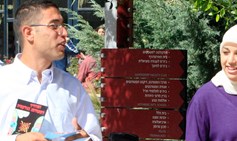
Arab Students at Higher Risk - Survey
Written By: Dr. Nasreen Haddad Haj-Yahya
Upon the opening of the new academic year a special national survey conducted by the Israel Democracy Institute and the Aharon Institute for Economic Policy found 22% of Arab students are considering quitting or taking a break from their studies, compared to 10% of Jewish students.
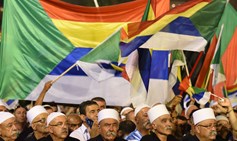
The Nation-State Law, One Year Later: What has Changed?
Written By: Dr. Amir Fuchs
A year has passed since, The Basic Law: Israel the Nation-State of the Jewish People, was passed. What, if anything, has changed in that time?

Arab Politics in Israel: Where are they Headed?
Written By: Dr. Arik Rudnitzky
The real story of the April 2019 elections took place outside the polling booth. In the Arab sector, the Movement to Boycott the Knesset Elections, a grassroots group based on Arab young adults and university students, working on the social networks with a shoestring budget, conducted an effective campaign with a simple and catchy slogan: “Boycott: The People’s Will.” This message stood in utter contradiction to the motto of the elections in 2015: “The Joint List: The People’s Will.”







